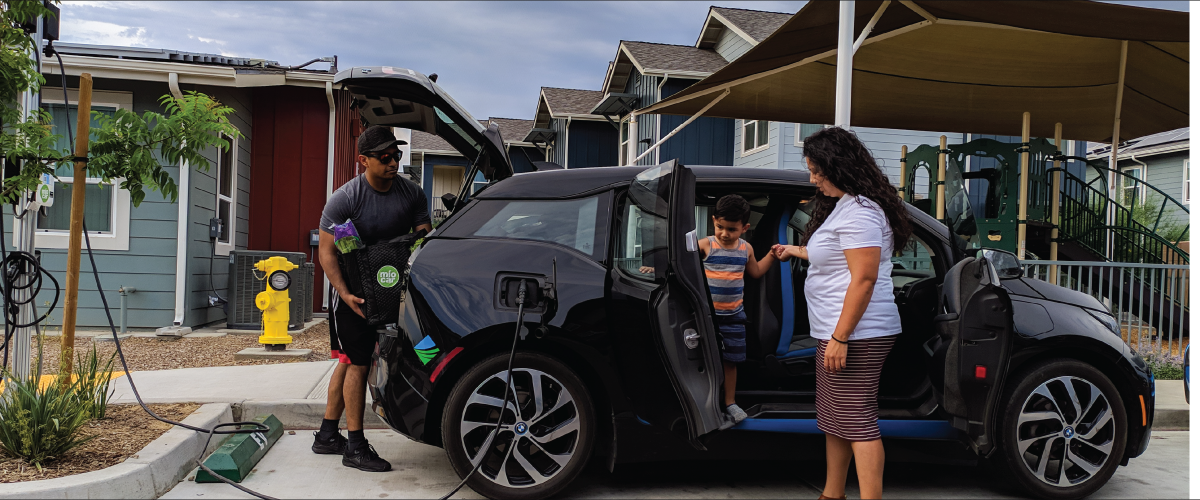Showing 1,493 results

James Goodwin | May 24, 2023
Gone are the days when people thought little about energy policy — when little more was demanded than reliable access to electricity at affordable prices. Rather, more and more Americans are becoming aware how our energy choices are inextricably intertwined with other shared values. A new report from the Center for Progressive Reform looks at this growing awareness and more through the lens of energy democracy.

Daniel Farber | May 23, 2023
We’ve already started to hear claims that the Biden power plant rule falls under the major questions doctrine, which the U.S. Supreme Court used to strike down former President Obama’s Clean Power Plan. Are those claims plausible?

Daniel Farber | May 15, 2023
Although the U.S. Constitution does not say so directly, the U.S. Supreme Court has said there are implied limits on state regulations that interfere with interstate commerce. This is known as the dormant commerce clause doctrine. State clean energy laws have been bedeviled by challenges based on this doctrine. The Supreme Court has just made it easier for states to fend off those claims.

Minor Sinclair | April 26, 2023
Six years ago, Smithsonian Magazine was among those decrying the death of public intellectuals (“the egghead is dead”). Where are today’s Ralph Waldo Emersons or James Baldwins or Susan Sontags, they mourned. The article went on to offer a fascinating insight. History shows that “public intellectuals always emerged when the country was sharply divided: during the Civil War, the Vietnam War, the fights for civil rights and women’s rights.” In this moment of ever-deepening divide, it gives me great pleasure to announce that the Center for Progressive Reform welcomes five prominent academics to our network. The toll for the death of expertise may have been premature; long live public intellectuals!

Allison Stevens | April 25, 2023
Testifying before Congress, releasing new books, engaging with the news media — our Member Scholars packed virtually a year’s worth of advocacy on climate justice, clean air and water, and worker health and safety into the first three months of 2023.

Robert Verchick | April 25, 2023
Last summer, standing outside the Paradise Inn in Washington’s Mount Rainier National Park, I still needed a fleece to keep warm. In the shadow of the park’s snow-covered volcano, the meadows sparkled with wildflowers. I remembered a news article from a few years back about how Mount Rainier’s iconic flora were slowly retreating to higher elevations away from the inn. Park scientists attributed this to higher temperatures caused by climate change. There was some debate at the time about whether park staff should manually seed the meadows where lodge visitors gather or to let the buttercups and salmonberries crawl naturally uphill. I don’t know where they ended up on that.

Daniel Farber | April 24, 2023
Ever since the Supreme Court decided West Virginia v. EPA, conservatives and industry interests have claimed that just about every new regulation violates the major question doctrine. When the Biden administration ramped up fuel efficiency requirements through 2026, ideologues such as the Heritage Foundation and states like Texas were quick to wheel out this attack. No doubt the same attack will be made on the administration's ambitious proposed post-2026 standard. Maybe Judge Kacsmaryk in Amarillo, crusader against abortion pills and all things liberal, would buy that argument. But opponents won’t be able to handpick their judge this time, and the chances that this argument will win in the D.C. Circuit are slim to none.

Cinthia Moore | April 24, 2023
Nevada is considered one of the hottest states in America, and it consistently tops the list of places with the most heat-related deaths per year in the country. But what a lot of people don’t know is that it is also the second most polluted state, with wildfires, vehicles, factories, and the mining industry being the biggest sources. The deadly combination of scorching heat and poor air quality makes Nevada a hazardous place to work, especially for migrants who work under the heat of the sun. Even those working indoors are exposed to poor air quality with no climate controls every single day.

A.R. Siders | April 21, 2023
Dr. Syukoro Manabe, Nobel Prize winner in physics for his groundbreaking work on climate modeling, said that while climate modeling is difficult, “nothing is more difficult than what happens in politics and in society.” Social scientists, not surprisingly, cheered his words, having long argued that not only are social sciences not “soft” but also that numerous social disciplines — anthropology, sociology, economics, law, public policy, and more — are critical both to understand the consequences of climate change and to develop climate mitigation and adaptation strategies. For all that it centers on a cephalopod, The Octopus in the Parking Garage, Rob Verchick’s new book about climate resilience, is a book about why social science is and must be at the heart of climate action.